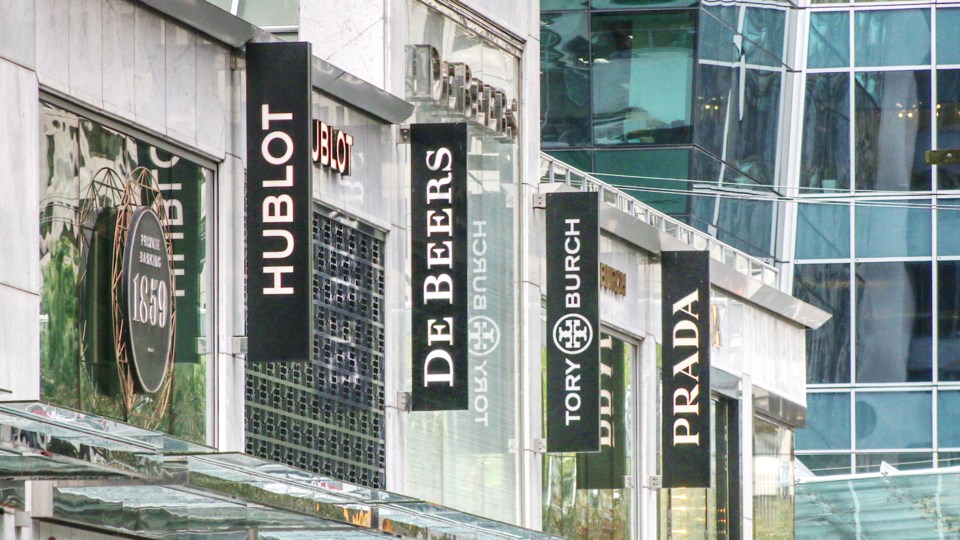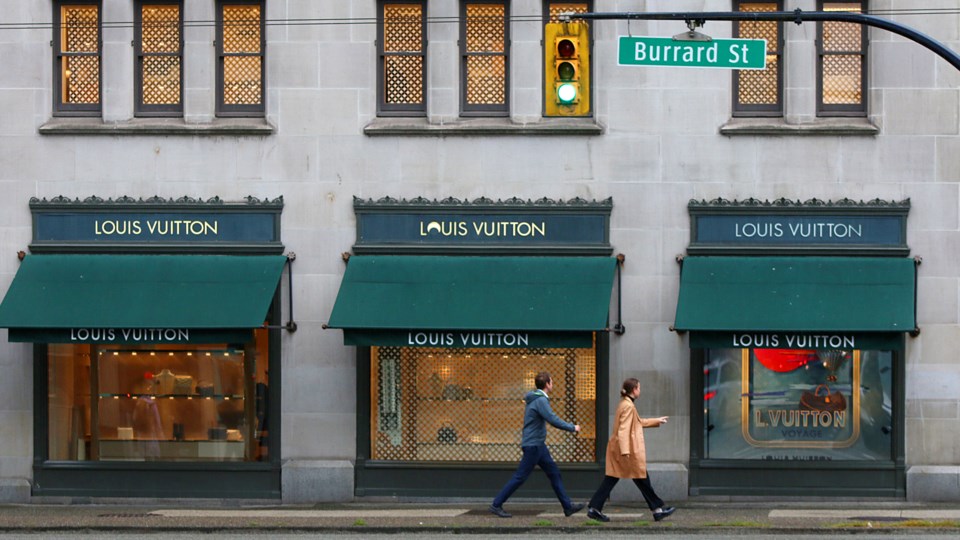Stimulus measures have started coursing through the veins of the Chinese economy in a government attempt to revive the world’s second-largest economic force.
B.C. business owners are taking notice.
That’s because a healthy China benefits more than just that country’s 1.4 billion residents. It can also be a catalyst for B.C.’s own economic growth.
Outside of the U.S., mainland China is the biggest customer for B.C. exports, purchasing nearly $7.4 billion worth in 2023, according to BC Stats.
Chinese visitors to B.C. provide another boost.
Pre-pandemic, Chinese visitors to the province spent more lavishly than domestic tourists, Americans or guests from any other country, according to Destination British Columbia. China was also B.C.’s third-largest source of tourists, after the U.S. and the U.K.
China’s economic health further propels global growth, which creates additional demand for B.C.-made products.
Simply put, B.C.’s economy enjoys a tailwind effect when China’s economy succeeds.
That has not been the case of late.
China’s GDP growth last year, at 5.2 per cent, was the lowest outside of the pandemic years since 1990, which was the year that followed political turmoil and a student movement calling for democracy that was brutally crushed by the state.
The country’s aim for 2024 is to grow GDP by five per cent. But, before recent stimulus announcements, many analysts had opined that it was unlikely that China would reach that goal.
Inflation has run amok in most Western nations, but in China, consumers’ reticence to spend prompted temporary deflation. Consumer prices fell 0.8 per cent in January and have only risen by slight amounts since, with the country seeing 0.5-per-cent inflation in July, according to China’s National Bureau of Statistics (NBS).
Unemployment is another problem.
The NBS reported in September that the jobless rate for Chinese residents between the ages of 16 and 24 and not in school rose to 18.8 per cent in August, up from 17.1 per cent in July and 13.2 per cent in June.
Central bank measures aim to reignite sputtering Chinese economy
China’s economic stimulus package is substantial.
It sent the Shanghai Composite index briefly up by more than 35 per cent, and to a 10-day win streak to a more than two-year high, from a 52-week low.
The country’s central bank, the People’s Bank of China (PBOC), on September 24 announced plans to cut its medium-term lending facility—the interest rate for one-year loans to financial institutions—to two per cent from 2.3 per cent.
The PBOC added that it would help the property market by cutting the interest rate payable on existing mortgages by 50 basis points, and lower down-payment requirements for buyers of second homes.
The central bank also moved to help the stock market.
It created a 500 billion renminbi ($96 billion) swap facility that insurers, asset managers and securities firms could tap to buy stocks or bonds.
It also created a 300 billion renminbi ($57.6 billion) fund that companies could use to buy back stock.
Other measures included lowering the amount of cash that the country’s banks need to hold in reserve—something that would free up capital to enable those banks to lend more money to clients, thereby stimulating the economy.
If those measures succeed, China will likely need to buy more B.C. goods to keep its economy humming.
While the $7.937 billion worth of B.C. goods exported to China last year was up 22.5 per cent from the amount shipped in 2019, the value of those exports has been on the decline.
B.C. exported $8.888 billion worth of goods to China in 2021. That fell to $8.487 billion in 2022 and then $7.937 billion in 2023, according to BC Stats.
Metallurgical coal, used to make steel, comprised more than one-third of the value of B.C.’s exports to China last year.
Pulp, paper and wood products amounted to almost 30 per cent of B.C.’s exports to China in 2023, and nearly 22.2 per cent of total exports were metallic mineral products—primarily copper ores and concentrates.
Machinery and equipment exports have declined. B.C. last year shipped $256 million worth of goods in that category, or 44.6 per cent less than it did in 2019. Exports of agricultural products and food other than fish also fell by $17.2 per cent between 2019 and 2023, to $130 million.
Could Chinese tourists return?
A thriving Chinese economy may be needed to persuade many of the country’s citizens to spend on travel and visit B.C.
One obstacle to that, however, is that Canada remains off a list of countries that the Chinese government has approved for trips by tour groups.
China last year first approved 60 countries for group tours and then added an additional 78 countries.
Canada, the Chinese government said at the time, was not on the list of approved countries because of rising anti-Asian discrimination and Parliamentarians’ allegations that China had interfered in Canadian elections.
Relations between China and Canada have been rocky since at least December 2018, when Canada arrested Chinese Huawei executive Meng Wanzhou at the request of U.S. authorities that alleged that she had violated U.S. sanctions on Iran.
The Chinese government within weeks arrested two Canadians—Michael Kovrig and Michael Spavor—on what many thought were trumped-up charges.
When Canada released Wanzhou in September 2021, China immediately released the two Michaels.
The effect of China’s political frostiness toward Canada is that far fewer mainland Chinese visitors are entering the country through B.C. entry points.
In July, the most recent month for which Destination British Columbia has data, there were 19,258 visitors from mainland China entering Canada through B.C.
That is down 63.6 per cent from the same month in 2019 and it is the biggest drop in visitors to Canada through B.C. among all countries.
In the first seven months of 2024, visits from mainland Chinese nationals to Canada through B.C. entry points were down 53.8 per cent.
Getting to B.C. from mainland China is harder than it used to be as fewer airlines fly non-stop between Vancouver International Airport (YVR) and airports in mainland China.
Pre-pandemic there were eight such airlines, flying a total of 55 flights per week, with a total of 15,502 seats.
Now, five airlines fly a total of eight flights per week between mainland China and YVR, with a total of 2,491 seats, including: Air Canada, Air China, Hainan Airlines, Xiamen Airlines, and Sichuan Airlines, according to the Vancouver Airport Authority.
China Eastern, China Southern and Beijing Capital Airlines no longer fly into Vancouver.
Destination British Columbia data holds that non-U.S. international visitors spend more per person on trips to B.C. than do Americans or domestic tourists. Mainland Chinese visitors were the highest-spending international visitors pre-pandemic, laying out an estimated $2,021 per person, according to the province’s tourism marketer. Australians were second at about $1,814, according to the organization’s data.
Retail Insider Media owner Craig Patterson said he agreed with the assessment that many Chinese visitors pre-pandemic were big spenders.
Some of those flush with cash still come to the city he said, adding that a source of his told him that the Louis Vuitton store in Vancouver recently sold a piece of jewelry valued in the millions of dollars.

Outside of that alleged large purchase, many luxury retailers are suffering, he said.
“I’ve been told jewellers are not doing as well as they could,” he said, adding that many retailers in Vancouver’s luxury hub on Alberni Street just west of Burrard Street are not doing that well.
Indeed, the day before the first stimulus announcement, on September 23, Bank of America (NYSE:BAC) analysts downgraded shares in luxury companies LVMH, Kering, Ermenegildo Zegna (NYSE:ZGN) and Hugo Boss (ETR:BOSS).
They attributed their move to weakness in Chinese consumerism, which had been the only driver of revenue growth at those companies in the first half of 2024.
Luxury brands were also blaming weakness in China for lower sales expectations, and that prompted many companies’ share prices to get pummelled.
In late September, Hermes owner Kering SA’s (EPA:KER) shares were down more than 41 per cent in 2024 up to September 25, while the S&P500 index on that date was up more than 20 per cent.
Luxury retail giant LVMH Moet Hennessy Louis Vuitton (EPA:MC) shares were down 14.59 per cent year to date on Sept. 25.
Shares in luxury companies around the world then saw share prices soar as investors digested news of China’s stimulus measures.

Flagging luxury retail sales is at odds with optimistic projections in a recent luxury report by Trendex North America, which touted a likely 4.2-per-cent increase in luxury apparel sales in Canada in 2024, and another 18.8-per-cent jump in that spending by 2027.
Trendex president Randy Harris was not available for an interview and he sent an email to BIV saying that he was "not interested in discussing the conflicts between your one-time estimates and Trendex's research."
Nonetheless, Patterson told BIV that he was surprised with Trendex’s positive assessment of the luxury-retail sector because “across the board, I’ve been told, anecdotally, that luxury retail is down.”
A stronger Chinese economy and one that provides more tourists to Vancouver would help the local luxury-retail scene, Patterson said.
Initial assessments of whether the Chinese stimulus measures were effective in getting its consumers to spend money have started to dribble out.
Goldman Sachs on Oct. 8 published research saying that during the seven-day Chinese golden week holiday, which ended Oct. 7 and marked the country's 75th birthday, consumers spent two per cent less per domestic trip than the pre-pandemic level.




